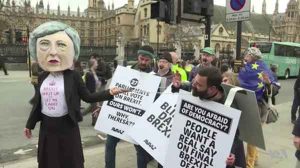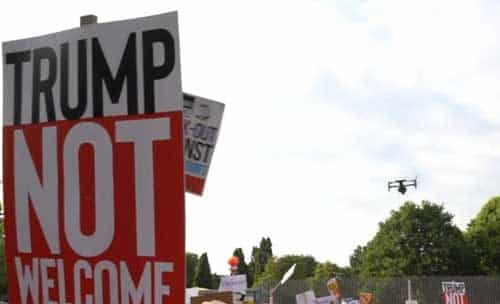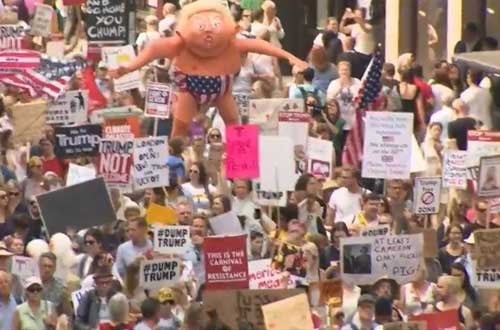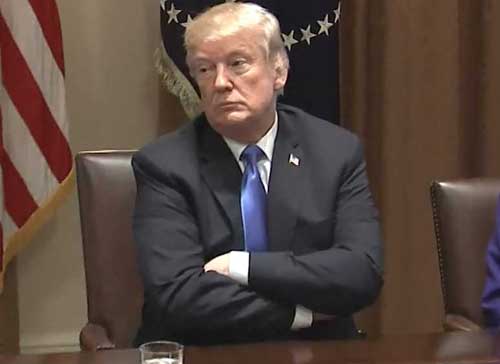
LONDON — Britain’s decision to leave the European Union has been a divisive issue, but its passage has called attention to a question that many people of varying political persuasions around the world are asking these days: Has globalization been good for communities?
The process of leaving the European Union officially got under way Wednesday when British Prime Minister Theresa May triggered Article 50, kicking off two years of negotiations for what promises to be a lengthy, messy and complex process of ending four decades of engagement with the European Union.
Addressing the British parliament’s House of Commons, May called it a “historic moment from which there can be no turning back.”
“The effect of European Union law is all pervasive, from constitutional level questions to the regulation of bananas and cucumbers at the bottom end of the spectrum. So, it is a mammoth task that will not be negotiated within two years. It will take a decade or decades to give full effect to EU withdrawal,” said Jo Murkens, a law professor at the London School of Economics.
After May gave her statement at parliament Wednesday, she received a stern warning from Labour Party leader Jeremy Corbyn, who called on her government to “consult the whole country” in its Brexit negotiations and get a “deal that delivers for the whole country.” He accused May’s Conservatives of turning Britain into a “tax dodgers’ paradise.”
Article 50
The triggering of Article 50 and the launch of Brexit negotiations is yet another milestone in what appears to be a growing war against globalism, a factor largely behind the Brexit movement, including by those who feel left behind and victimized by corporate cronyism.
One battle in that movement has been fought in the English city of Bristol, where a group of citizens, paradoxically including Brexit opponents, have begun to do their share to stop the flow of money and jobs out of the city, and preserve the local culture.
In Bristol, the strike against globalism and homogeneity began five years ago with the launching of the Bristol Pound, a currency whose value is equal to the Pound Sterling, but can only be spent in the city.
For local businesses like Roll For The Soul, a non-profit bike repair shop and café, it is about keeping money in the local economy — and quality of life.
“Not having the money that’s taken in the city kind of siphoned off, going up the chain of command in some big corporation. It’s about, you know, paying people for the labor that they do in the city that we live in,” said Rob Wall, the shop’s manager.
“It’s important to resist to some extent that kind of homogenization and every town or city looking the same, I don’t see that as particularly interesting or particularly good for the people who live in any of those places,” he said.
Mixed emotions
Wall and other backers of the Bristol Pound voted against Brexit, but with mixed feelings. He and others in Bristol say they want integration with Europe and free trade, but also a system that protects local economies and cultures.
“We all value that stuff. Nobody kind of disagrees with it, but we don’t have an economic system at a global level that’s allowing it to flourish. So we have to make interventions and that’s what we decided to do here in Bristol,” Ciaran Mundy, executive director of the Bristol Pound enterprise, told VOA.
Brexit is now a reality, and for Rob Wall, going it alone does not seem as scary as it did only a few months ago.
“We don’t yet seem to have seen the kind of enormous economic catastrophe that was predicted. That said, we haven’t actually left yet. We’ve only just triggered article 50, so how it plays out over the next few years, I don’t know,” he said.
Across Europe, uncertainty spread as the remaining 27 EU nations prepared for two years of deal-making that will encompass the thorny tasks of agreeing on a fair migration system, security arrangements, workers rights, and a new trade relationship.
“There’s no reason to pretend that this is a happy day,” said European Commission President Donald Tusk to reporters in Brussels after receiving Britain’s six-page letter that formally notified him Brexit is underway.
“We already miss you. Thank you and goodbye,” said Tusk.
For the time being and amid the uncertainty, the people of Bristol have spawned a revolution of their own.
Source: VOA








